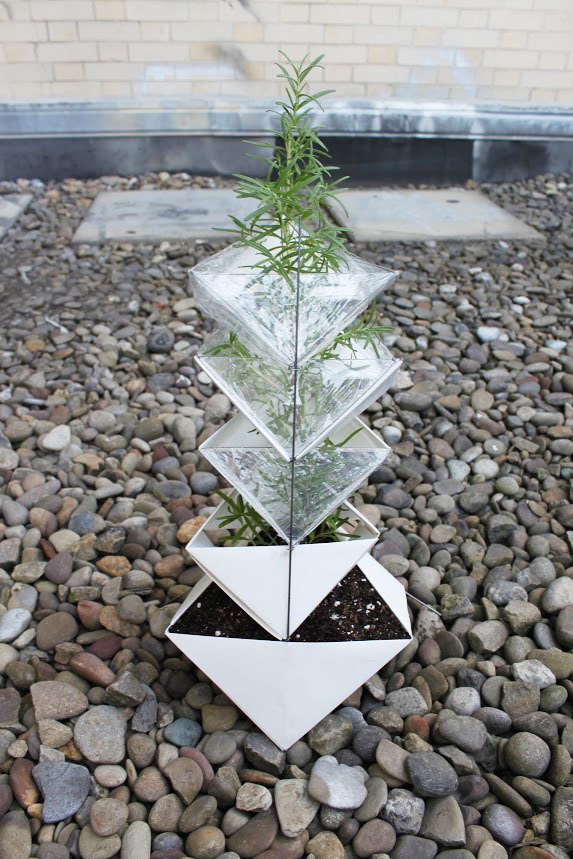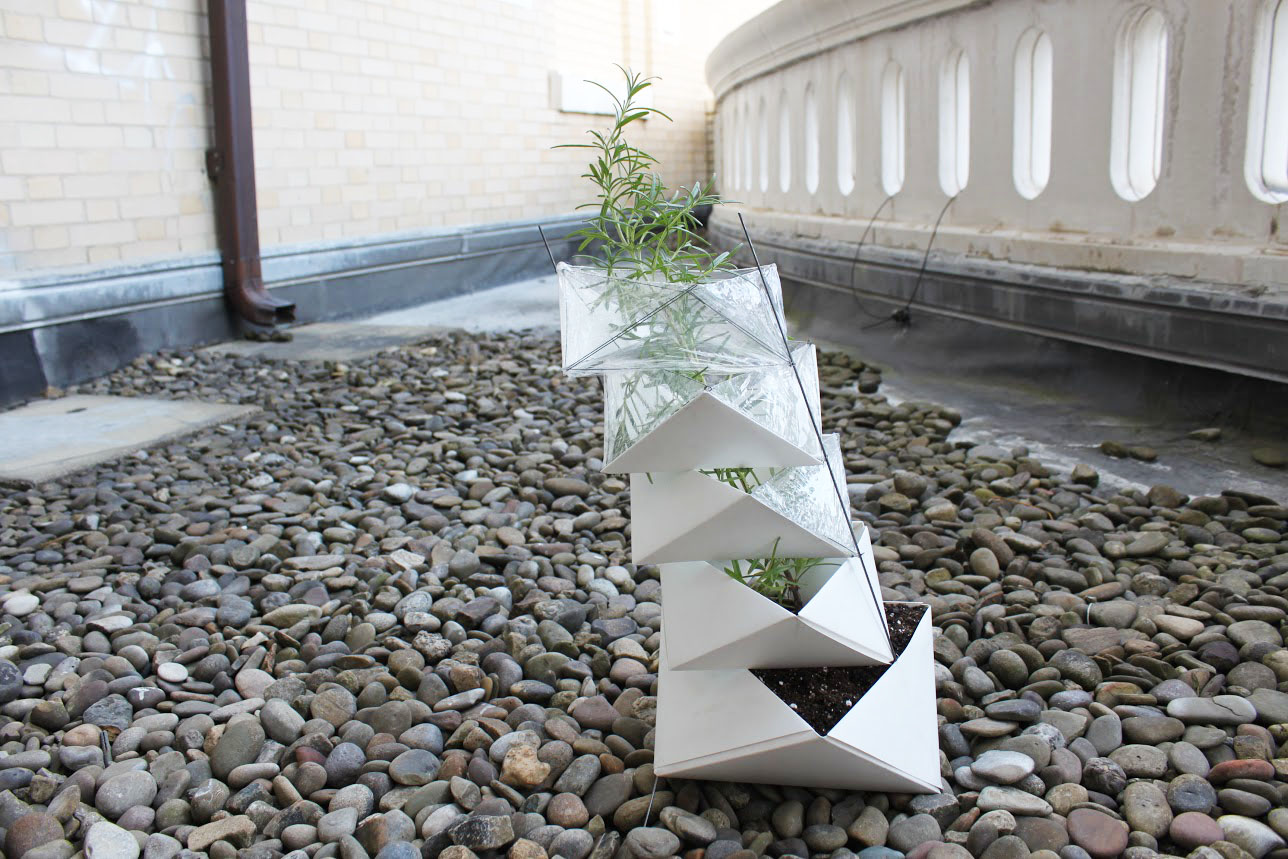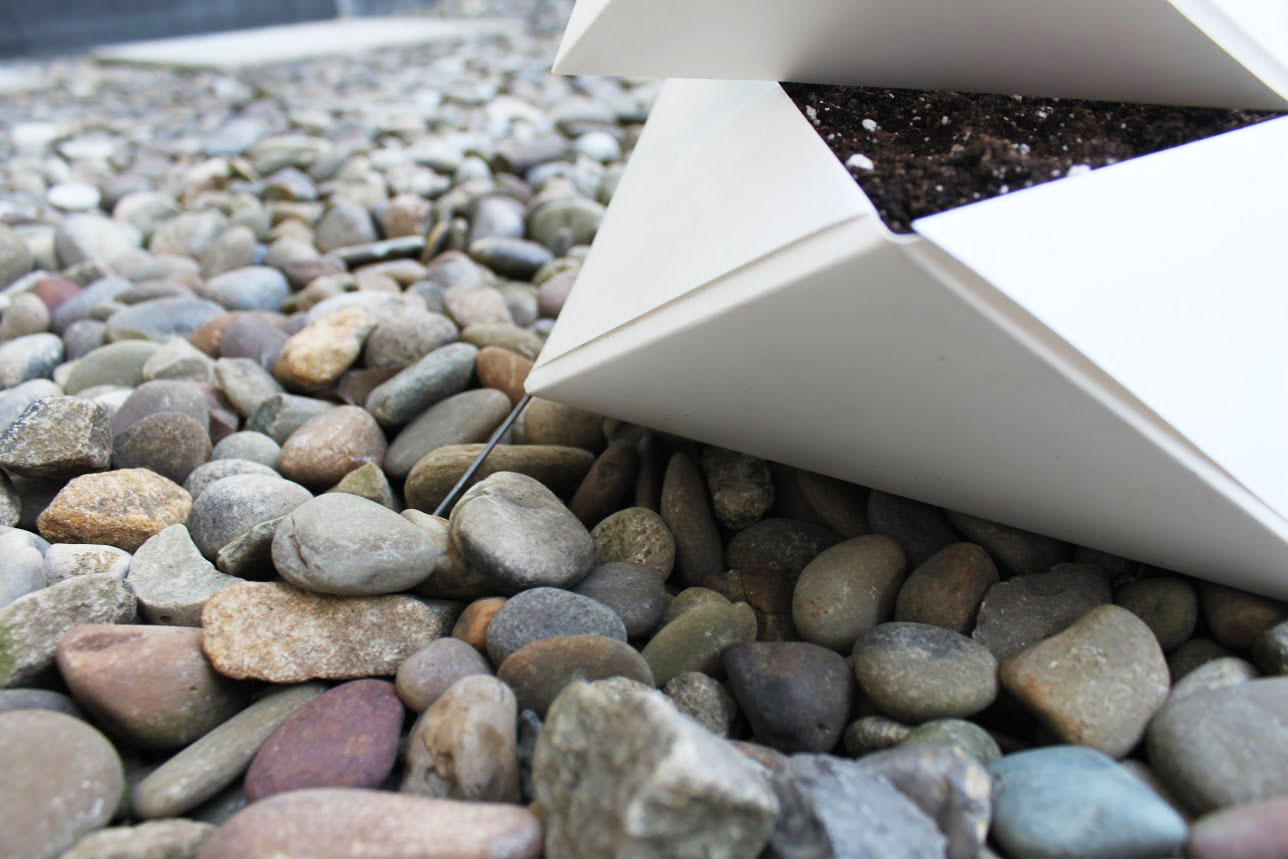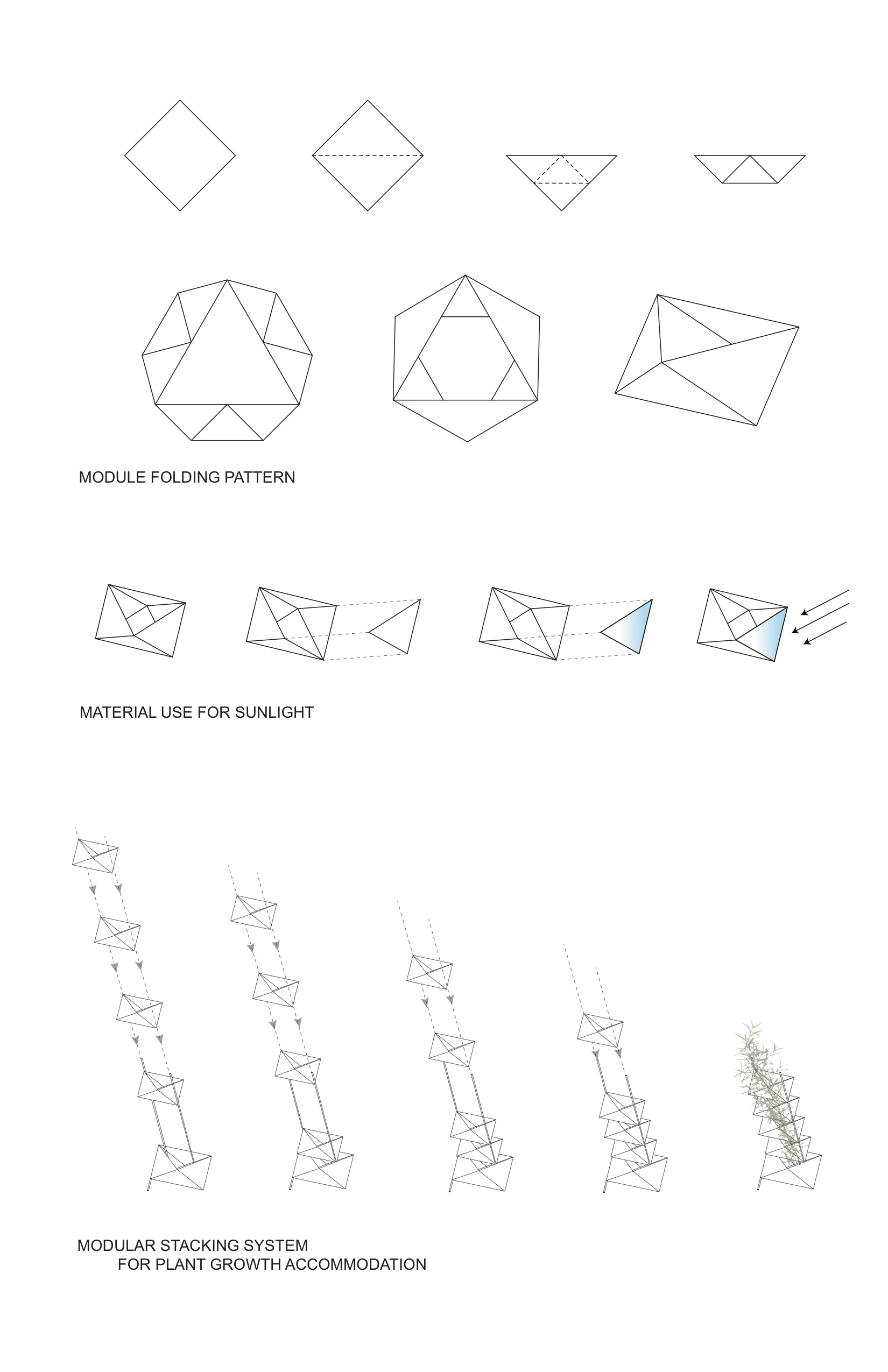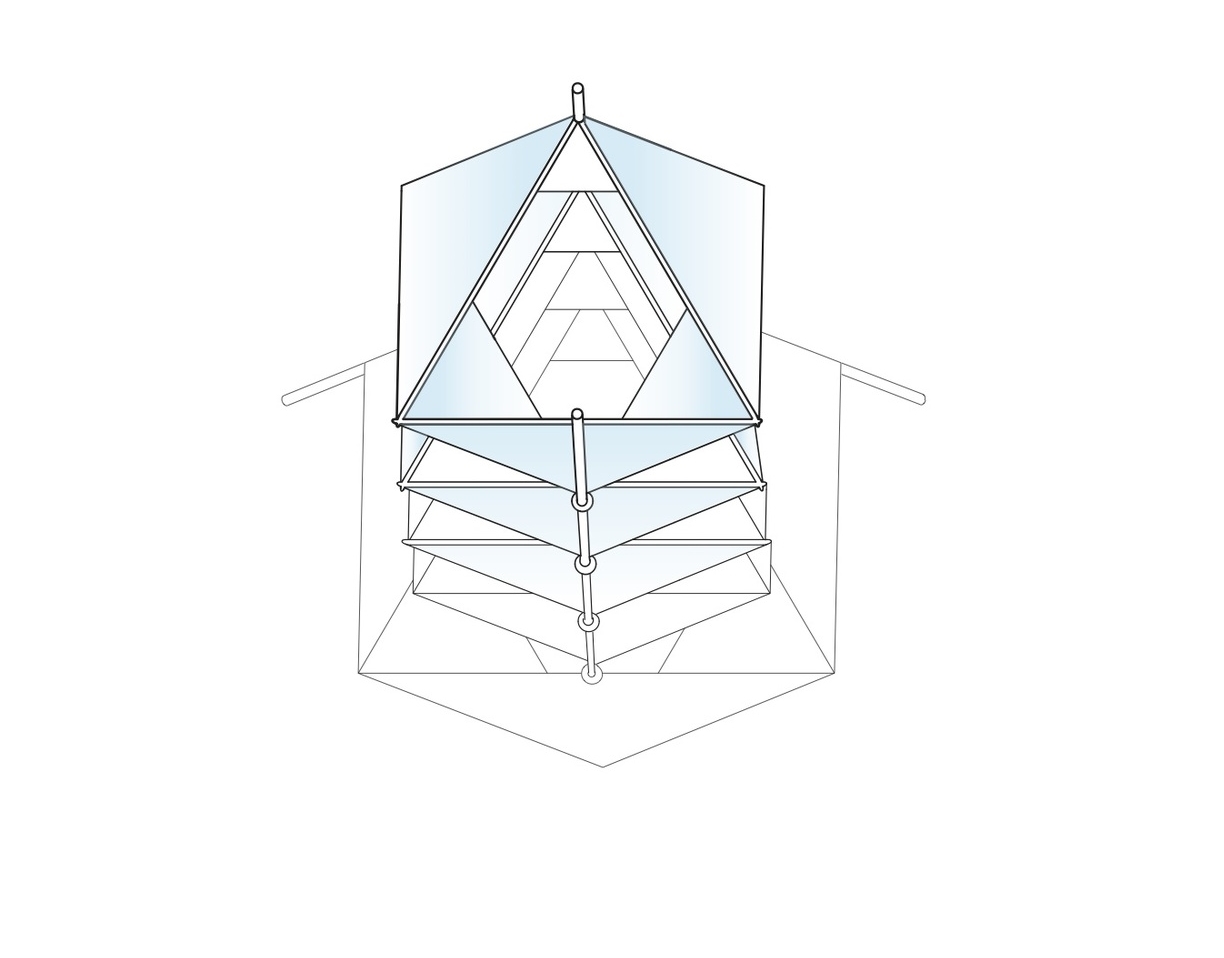Carnegie Mellon University architecture building, Pittsburgh PA
[Josh Bard with Jeff King]
Week long independent project
An armature for a single rosemary plant constructed with the lightweight materials of yupo paper, piano wire and heat shrink plastic. The design is specific to the plant's needs to help it survive outdoors through a frost. Rosemary requires full sunlight, average water, sandy soil and good air circulation. The constructed armature is lightweight, portable and still functioning as a planter. Rosemary plants are often found in rock gardens so the armature base is elevated by a tensile stand suited for resting on rocks and properly drains excess water.
The module and natural form of the single rosemary strain resembled a vertebrae and spine. The human spine and rib cage form a protective structure just as the armature does for the plant. The gaps in the form are intentional to allow for air circulation that a rosemary plant needs. The form of the final armature grew out of the initial triangular module that utilized the strength of the yupo paper and allowed for experimentation of scale and assembly of multiple modules. The module itself was derived by an origami folding pattern with a skeleton structure of piano wire. After a 4 month test period of the plant armature in the environment, the structure and design proved successful. The plant stayed alive through the first frost and the armature controlled appropriate levels of water, sunlight and air flow.
FRONT ELEVATION AND PLAN
